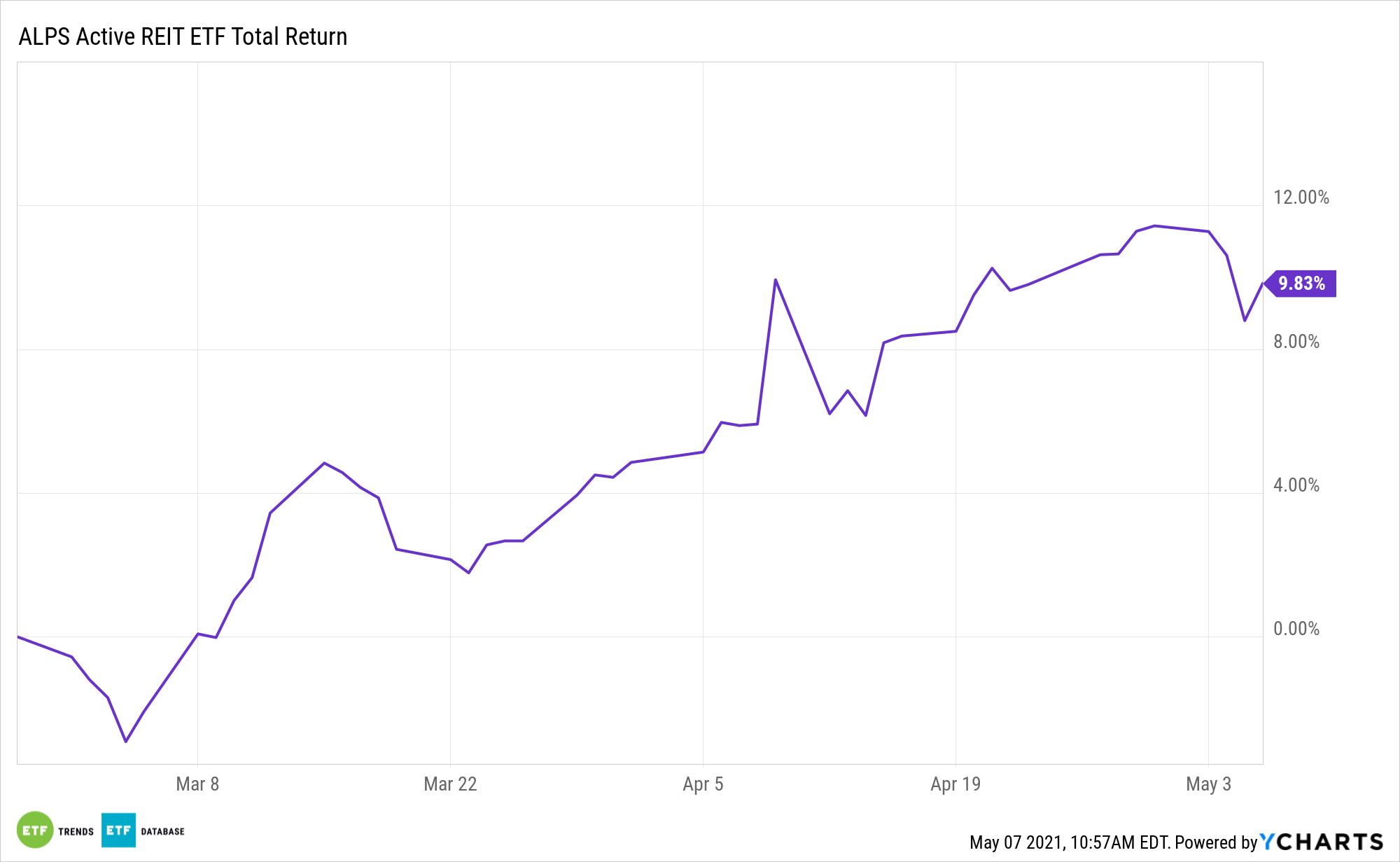The real estate sector suffered significant damage at the hands of the 2020 coronavirus market slump. It’s also been one of the better rebound stories, and that strength is on display this year as the S&P 500 Real Estate Index is higher by 14%.
However, some market observers are lukewarm on the sector, signaling that gains from here may be limited. That may be the case with prosaic passive strategies, but active funds, including the ALPS Active REIT ETF (NASDAQ: REIT), can move swiftly to allocate to segments of the real estate sector that offer more upside potential.
REIT’s active style is relevant at a time when the outlook is bright for some corners of the real estate market and challenging in other segments.
“The COVID-19 pandemic continues to be a significant headwind to the overall REITs sector. Commercial property demand remains well below pre-crisis levels, as segments of the economy have yet to fully recover—which increases the risk of lease defaults, particularly for retail and hotel REITs,” said Schwab’s David Kastner in a research report.

An Uneven Recovery for Major Real Estate Segments
The coronavirus pandemic has initiated a seismic shift in a variety of sectors, real estate included. For example, hotel REITs can bounce back alongside travel demand, but office REITs may be vulnerable to long-term work from home trends.
“The outlook for office REITs is highly uncertain and will likely stay so until we know if there will be an enduring shift toward remote working,” said Kastner. “While net debt for the sector is low by historical standards, the risk to cash flow puts many REITs in a difficult position. And valuations have deteriorated.”
Dark clouds for some corners of the REIT universe highlight the utility of the ALPS fund in this environment.
“There are some exceptions, however. Warehouse/distribution center demand appears to be outstripping supply—resulting in sharply rising rents. And with the rapid rise in home prices amid low rates and de-urbanization, REITs specializing in single-family home rentals and manufactured homes stand to benefit,” according to Kastner.
REIT is a semitransparent fund, meaning its holdings are not disclosed on a daily basis.
Other REIT ETFs include the Schwab US REIT ETF (NYSEArca: SCHH) and the Pacer Benchmark Data & Infrastructure Real Estate SCTR ETF (SRVR).
For more on cornerstone strategies, visit our ETF Building Blocks Channel.
The opinions and forecasts expressed herein are solely those of Tom Lydon, and may not actually come to pass. Information on this site should not be used or construed as an offer to sell, a solicitation of an offer to buy, or a recommendation for any product.








